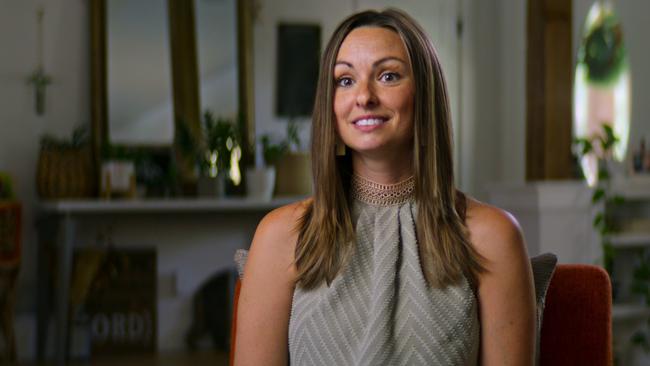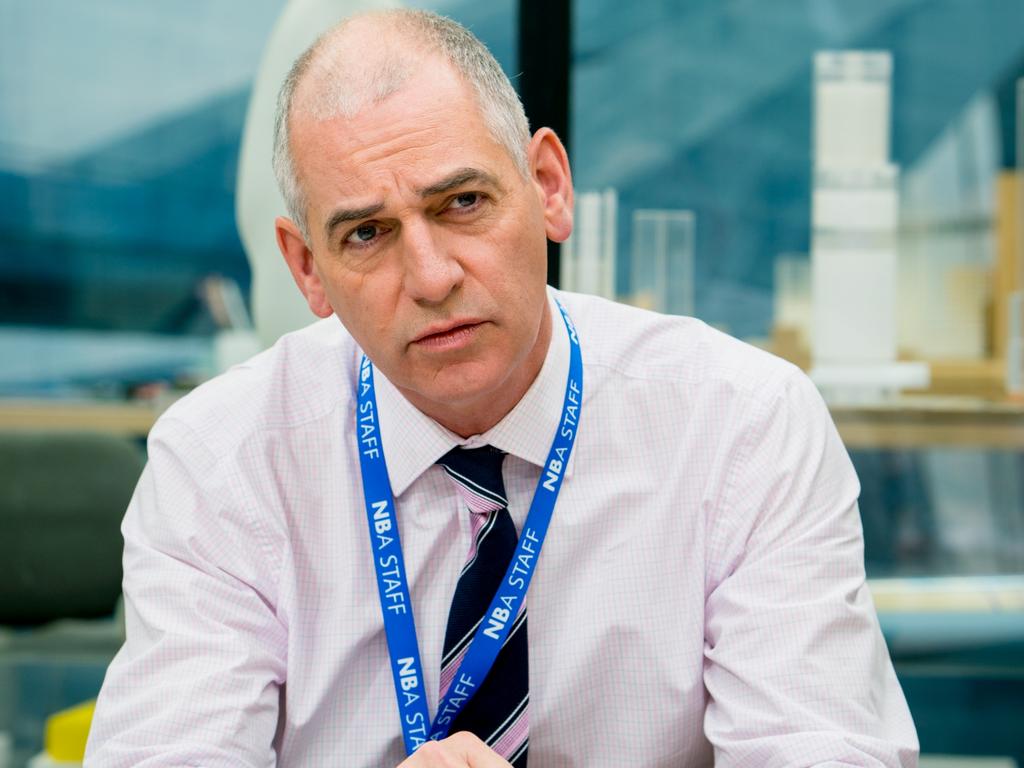We all know cheating is bad. So why did Ashley Madison have 37m members?
Is the monogamous marriage model now antiquated? Netflix’s latest viral hit, knocking Baby Reindeer out of its number one spot, is creating enormous discussion among the millions who have watched it.

“We must concede that adultery cannot be a workable answer, for no one can be its victim and not feel forever cut to the core,” wrote Alain de Botton in The Course of Love.
Why people do it, and cause such suffering, when they are caught out sabotaging the intimacy and the vulnerability of a relationship, is just one of the many questions raised in Netflix’s Ashley Madison: Sex, Lies & Scandal.
The three-part series, the streamer’s latest viral hit, knocking Baby Reindeer out of its number one spot, is creating enormous discussion among the millions who have watched it.
It’s the true crime documentary about the now legendary hacking of the online dating site for adulterers in 2015, in which private information was stolen by still unknown vigilantes. And used to humiliate, shame, and morally castigate people who were assured their information was protected.
The level of public analysis is remarkable because it’s a true crime that contains no murders or court cases, no major new revelations, and doesn’t address advocacy or intervention, its evildoers a bunch of morally righteous cyberspace villains who still haven’t been caught.
Just what is the validity of marriage with gender roles being constantly challenged and evolving, feminist critics are asking? Is the monogamous marriage model now antiquated? If it’s not illegal, others ask, surely Ashley Madison has the right to promote a service that does not violate laws, despite the ethics involved?

The chat goes on. What are other companies doing to secure their networks, the risk averse afraid of being duped query? And just how competently our, non-adulterers that is, own sensitive online information is – or can be – well-protected? Why is it that if we having nothing to hide, we are still terrified of being scammed?
As the writer Heather Havrilesky said at the time, “The root issue is simple: When the public is patrolled by a mob, the consequences are dire for everyone involved.” As she suggests, are we “surrendering completely to a modern sense of learned helplessness, or who simply don’t care about protecting the weakest or the most vulnerable among us.”
Anthony Burgess described adultery as the “most creative of sins” but many involved in this dating site for married people fantasising about a clandestine affair, found that engineering a tryst online was more traumatic than imaginative when the hackers hijacked their details.
As the show documents, the Ashley Madison Agency was founded in 2001 by urbane lawyer Darren Morgenstern, based on a simple, resonant catch phrase, “Life’s short. Have an affair”. It’s a refrain heard constantly through this series, sometimes incredulously, often approvingly, and occasionally as if it’s the wittiest thing anyone has ever heard. The company’s first advertising slogan was, “When monogamy becomes monotony”; the first commercial started with the line, “This couple is married, but not to each other.”
Its activities from the start created much anger and controversy and a huge amount of media attention, even as thousands, and then millions, signed up with their credit cards.
The name was taken from the two most popular girls’ names in the US at the time, chosen because it “seemed a little upper class,” says Marc Morgenstern in the film, the founder’s brother, and the company’s former creative director, also urbane and affable, and rather smug. “It seemed the site had a certain pedigree.”
His brother was inspired to create a platform for adulterers, he says, after seeing a statistic that 30 per cent of people on existing dating sites were married. And Marc is clear that from the start Ashley Madison was never conceived as an adult site but one that was “mature themed.”
His brother turned the site into an international cash cow and by 2015 there were 37 million subscribers. But then it crashed when the anonymous group of hackers known as The Impact Team staged the massive data breach and exposed personal information about millions of Ashley Madison users.
As the series demonstrates its pledges of cybersecurity excellence were a lie. The colourful Evan Back, a former vice-president of sales, says in the documentary, with little sense of contrition, “The promise of security, anonymity and guaranteed safety was just something we said – it was not something we did. It was gambling with people’s lives.”
The leak led to the public shaming and extortion of many Ashley Madison users, and to at least two suicides, with internet vigilantes determined to hunt the hackers down.
The series is from the enterprising London based Minnow Films, directed by Toby Paton, who also worked on The Brexit Storm: Laura Kuenssberg’s Inside Story and Max Clifford: The Fall of A Tabloid King. Paton is backed up by episode directors Zoe Hutton and Gagan Rehill.
It’s an entertaining example of Netflix’s new wave of prestige true crime filmmaking – “agony as entertainment” some critics call it – exploring the outcome and consequences of the hacking scandal and analysing the way the site was developed by Morgenstern, known as “The King of Infidelity”, and his colleagues. (The sign on his office door, a kind of visual motif in the narrative, read, “Ministry of Affairs.”) And like the best true crime, it appeals to our curiosity, cynicism, and our need for answers that make us feel safer.
There’s the expected cinematic sheen to the show, good-looking visuals from director of photography Jean-Louis Schuller, a specialist in this kind of high-end documentary, and some well-researched reporting. There are interviews with former members of the site who candidly share their personal stories and experiences in the meantime, one couple offering a surprising and unexpected perspective on what was once called an “open marriage”. First up, Christian couple Sam and Nia tell all – his tag “Dirty Little Secret Man” – not entirely convincingly; and Rob and Stephanie are a slightly unsettling couple of adulterers who give each other permission to indulge, she as a lively dominatrix, he rather worn from all the illicit shenanigans.
Those that worked at Ashley Madison at the time are featured, the story told colourfully from the inside largely, including a battle-hardened former customer service representative. “I saved a lot of marriages,” she says of her dealings with countless calls from wives questioning their husband’s credit card accounts. There’s even a studio interview with an actor from an elaborately restaged commercial. Of course, there are those abstracted re-enactments that join the talking heads, archival family footage, and the local news clips and newspaper articles shot in that now ubiquitous Ken Burns fashion, panning, and slowly zooming into them. There’s a lush, often witty, soundtrack from Mat Davidson, too, propelling the storylines and adding musical themes and character.
“We all know infidelity can be incredibly destructive and hurtful but at the same time, the fact that Ashley Madison had 37 million members tells us something else we all know – that committing to one person for the rest of your life is really hard,” Paton told Netflix’s Tedum. “Rather than berating people who joined Ashley Madison we were much more interested in exploring why they were drawn to the site. What were they looking for? What was going on in their relationships? And crucially: What was their partner’s side of the story?”
Back acts as a kind of narrator, a touch of the jester about him, a practised disturber of the peace, with a slight touch of malice lurking beneath the granny glasses. In the first episode, he leads us through the development of the site up until the hack, almost gleefully unrepentant, dressed in a bright pink Hawaiian shirt, lounging around his apartment and pool.
The documentary subjectively opens on him as he prepares for the interview, goofing around with a pair of oversized sunglasses. He’s full of good lines as he leads us into Ashley Madison’s history. “We put the fun into the dysfunctional,” he cracks, obviously a hit at the many trade shows he attended. He takes us through Morgenstern’s journey to sell Ashley Madison, his appearance on endless chat shows trying desperately for legitimacy. “Norm called himself a postmodern feminist,” he says, “trying to make things better for women. Helping them escape the bonds of patriarchal marriage.”
He has another good line, which perhaps explains the success of Ashley Madison, which now under new management is reported to have about 70 million members, “There’s an old expression which we live by: ‘talk good about me; talk bad about me; but please talk about me.” Well, not only the success of the cheater’s web site but also this series perhaps.
Ashley Madison: Sex, Lies & Scandal, streaming on Netflix.







To join the conversation, please log in. Don't have an account? Register
Join the conversation, you are commenting as Logout